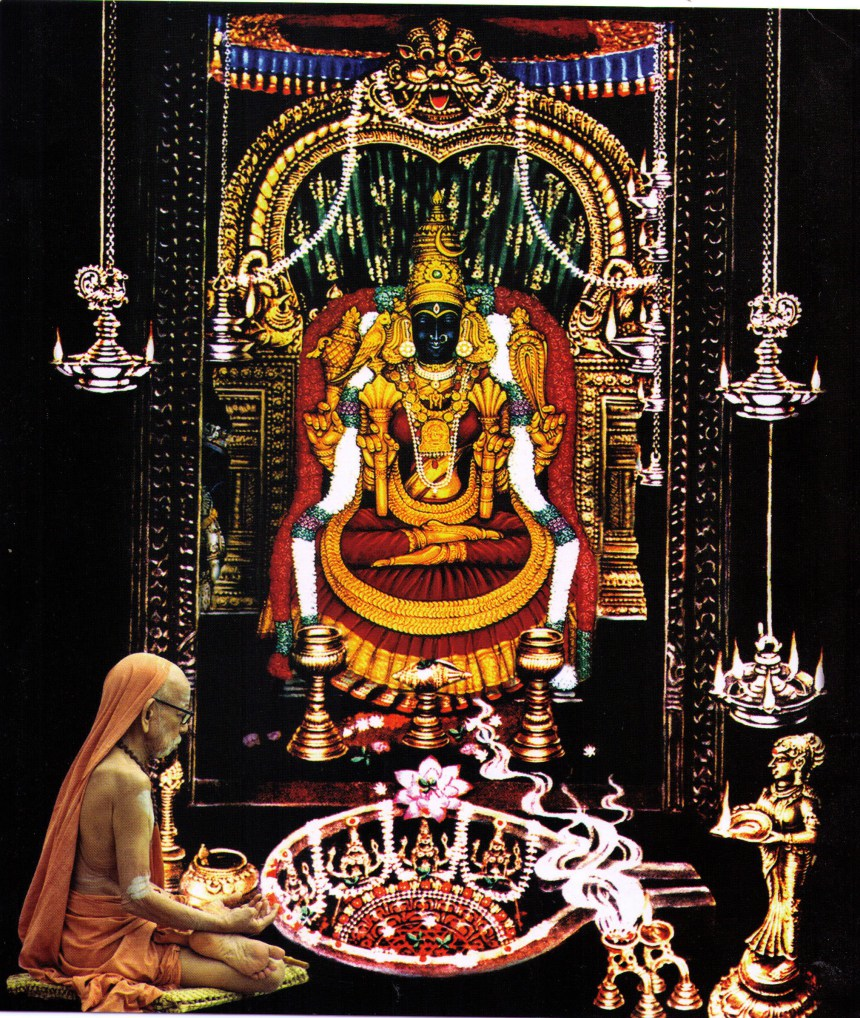There is a saying in English:" Give a dog a bad name and hang him." The dog is a faithful animal and full of gratitude for its master. Few would relish the idea of a dog being hanged. So if any dog is to be hanged, it is perhaps to be given a bad name.
Reformers who claim to be modern do the same with our dharmasastras. For ages these sastras have done this nation nothing but good. But the reformers want to sentence them to the noose on the plea that they have given rise to many an evil. Some feel that there is no need for the division of the society based on our ancient and eternal sastras. So they invent outrages ostensibly perpetrated in pursuance of the tenets of the dharmasastras. "In our country there is a stipulation about who can do what, " they say opposing the varna system. "As a result, the people have become divided. There is no unity among Hindus. This is a cause of our having frequently come under the heel of foreign powers."There is not an iota of truth in this allegation.
It may be that when a common adversary confronted us there was no unity among the rajas. But there is nothing to support the view that, because of differences arising out of caste, this or that section of the people helped the invader. Ironically enough, it is today that there is so much disunity and hatred with all the clamour for the abolition of caste differences. In the past, on the contrary, there was nothing but happiness in the society when caste distinctions were maintained. When there were disputes between two villages over a plot of land, boundary or canal, the inhabitants of either village remained united as one man-from the Brahmin to the untouchable. If it was the example of unity provided by a village, you could very well imagine how the country on the whole would have remained united.
People divided into small communities were enabled and encouraged to live together in a well-knit manner and the members of each community were proud of belonging to it. And these had also their headsman. If anybody was proved guilty of an offence he was excommunicated. Such a punishment was considered a disgrace since people were greatly attached to their respective communities apart from being proud of belonging to them. And this acted as a deterrent to crime. Now there is no institution to unite people together in this manner on a heart-to-heart basis. Perhaps it is not possible also to cement people together today since they are all part of a larger system which is not easy to control. What is the result? The incidence of crime is on the increase and correspondingly the responsibilities of the police. Those who are opposed to the sastras must pause to think about such developments.
There is bound to be opposition to any idea, any system and it is indeed to be welcomed. It is by respecting the views of the opposition that we discover our own drawbacks and prepare to remedy them. But it is quite another matter to oppose a system for its imaginary defects because the only consequence then would be that its good features would come under threat.
I will give you an example of criticism that is totally unfounded or imaginary. Some people think its "uncivilised" to wear any sacred marks on the forehead. It is given a bad name as a "caste mark". As a matter of fact the sacred ashes (bhasma or vibhuti), for example, are worn by all castes, from the Brahmin to the Harijan. So is the case with the Vaisnava namam(made of Tiruman or the sacred earth):it stands for truth that everything is of the earth and mingles with the earth, that all is Visnu. The ashes are the symbol of the Paramatman. When the body is cremated all that remains is the ashes which are the symbol of the eternal Brahman. Is it right to condemn the use of such symbols that stand for great truths?
All old dharmic traditions must be protected and kept alive. Sri Sankara Bhagavatpada has commanded us to do so. I bear his name. So it is my duty to remind you of his injunction. Whether or not you will heed it, I should impress upon you that the sastric customs have the purpose of ensuring the good of all mankind.

